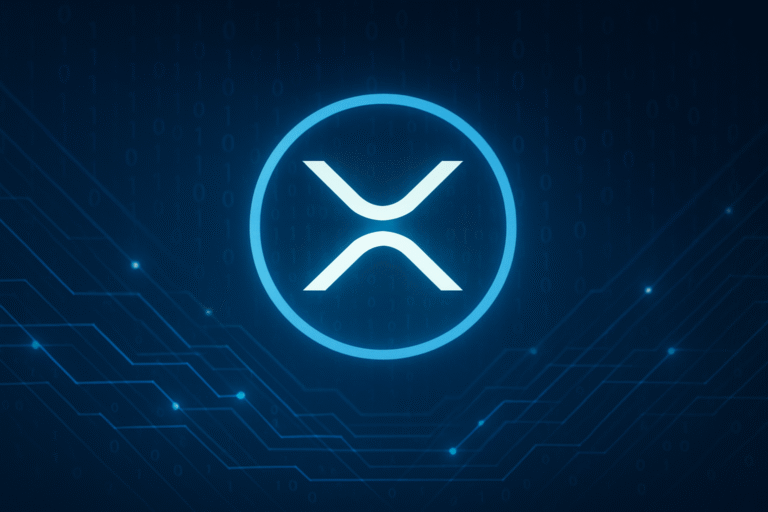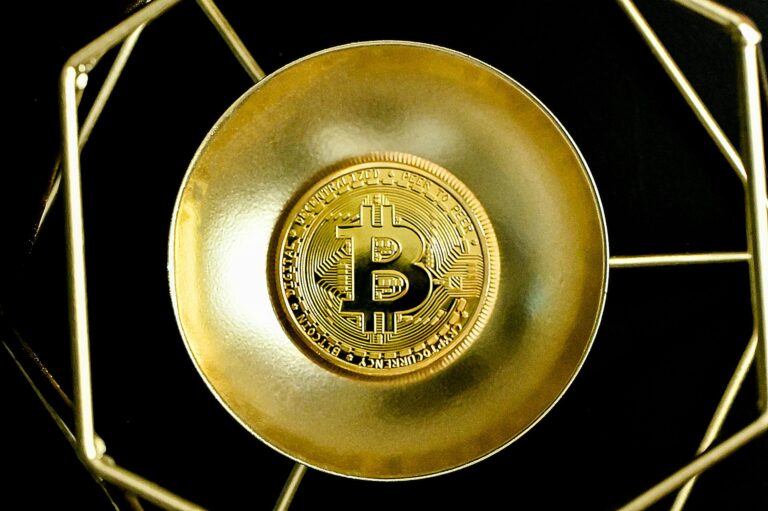A paywall won’t fix the biggest problem I have with Samsung Health
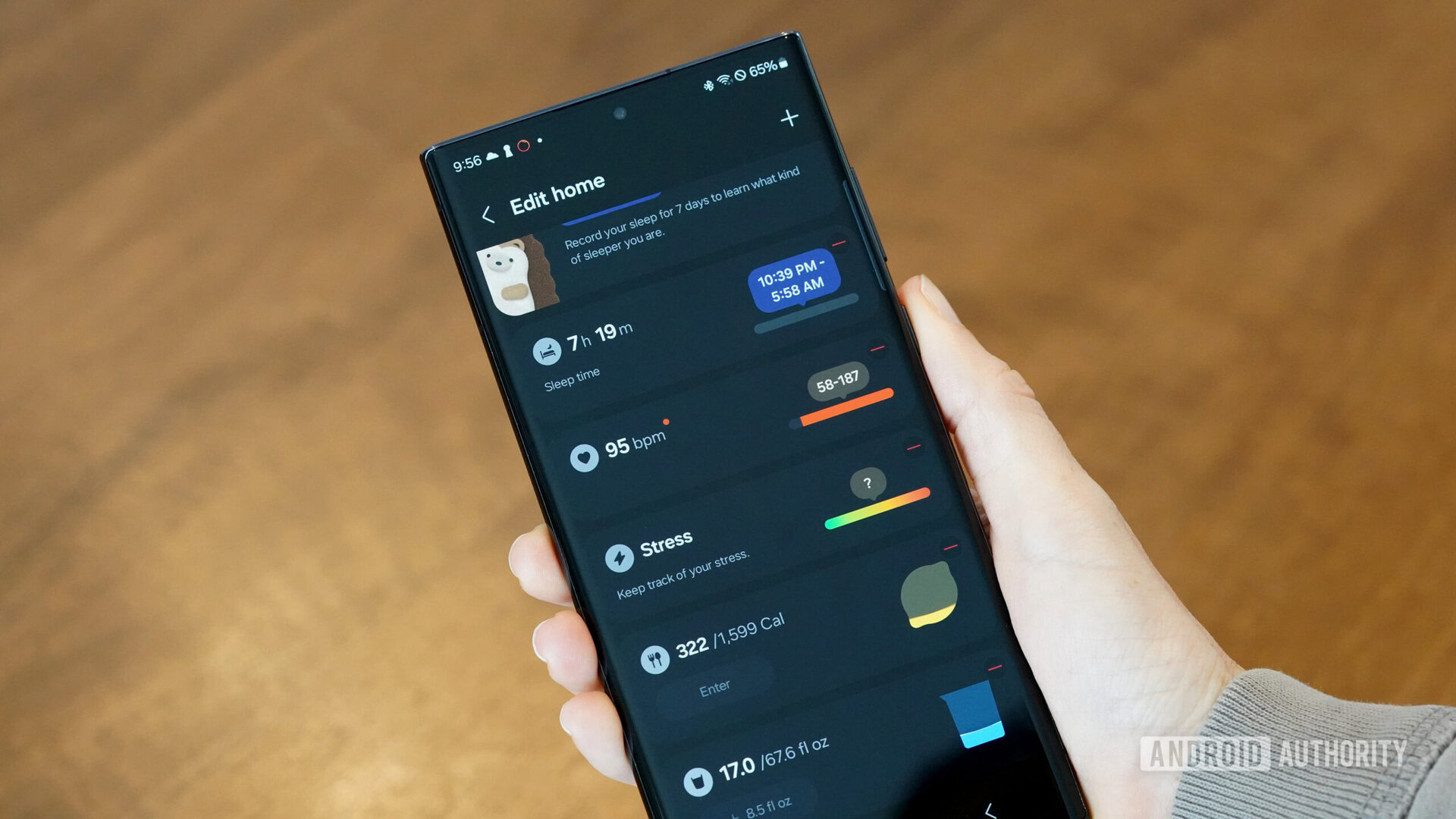
Kaitlyn Cimino / Android Authority
To be fair, I don’t dislike what Samsung is doing with Health. The current experience, at least on the surface, offers enough to guide users toward their fitness goals, whatever they might be. The platform does a great job of providing context for specific metrics, encouraging me to get moving after long sedentary periods, and seamlessly starting workouts when it senses I’m active (and not just washing dishes).
Do you feel that Samsung Health is accurate and reliable?
0 votes
While I’ve always returned to my Galaxy Watch for its smartwatch features and have settled on it because I own a Samsung smartphone, perhaps it was the wrong choice for my well-being. I don’t completely trust how it presents my data and, therefore, the data itself.
I don’t feel how Samsung Health thinks I should feel
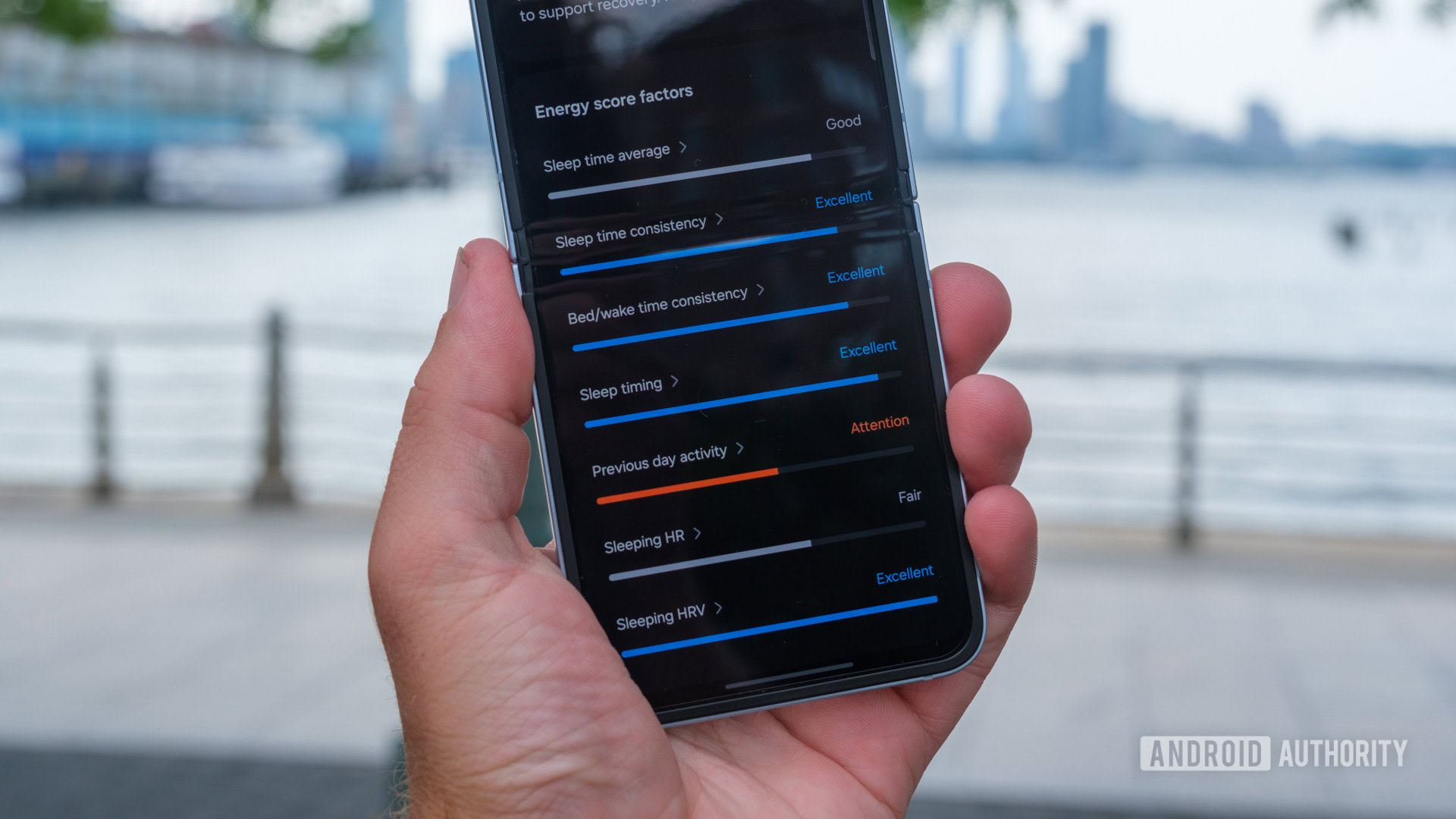
Ryan Haines / Android Authority
One prime example of my mistrust relates to sleep tracking. For almost every health tracking company, the Sleep Score metric is a simple way to indicate the holistic impact of a previous night’s rest. However, I’ve found that Health’s score has lost all meaning, especially when compared to how I actually feel.
Health’s Sleep Score has lost all meaning, especially when I compare the number to how I actually feel.
Last night, I had an incredible sleep, probably the best of the year so far. I got over 10 hours of desperately needed rest, after spending much of the year regularly getting under six. I also accrued 2 hours and 50 minutes of REM and 1 hour and 24 minutes of deep sleep — two crucial metrics for physical and mental recovery. It’s no wonder I feel refreshed. However, Samsung Health didn’t think my sleep was so great. It gave me a Sleep Score of just 70, lower than the 81 a 9-hour and 15-minute rest was scored three nights ago. Did it matter that I woke from that sleep groggy and lethargic? Nope.
So, what do I do with this data? I understand that the score comprises various metrics, so incongruencies with real life are bound to appear. But why should I trust this figure to depict my rest accurately? If I can’t connect the data reported to how I feel, what use do I have for that data to improve my rest? It’s just noise at this point.
Notably, Samsung has tried to remedy this by introducing the Energy Score, but that metric is even more nebulous and confusing.
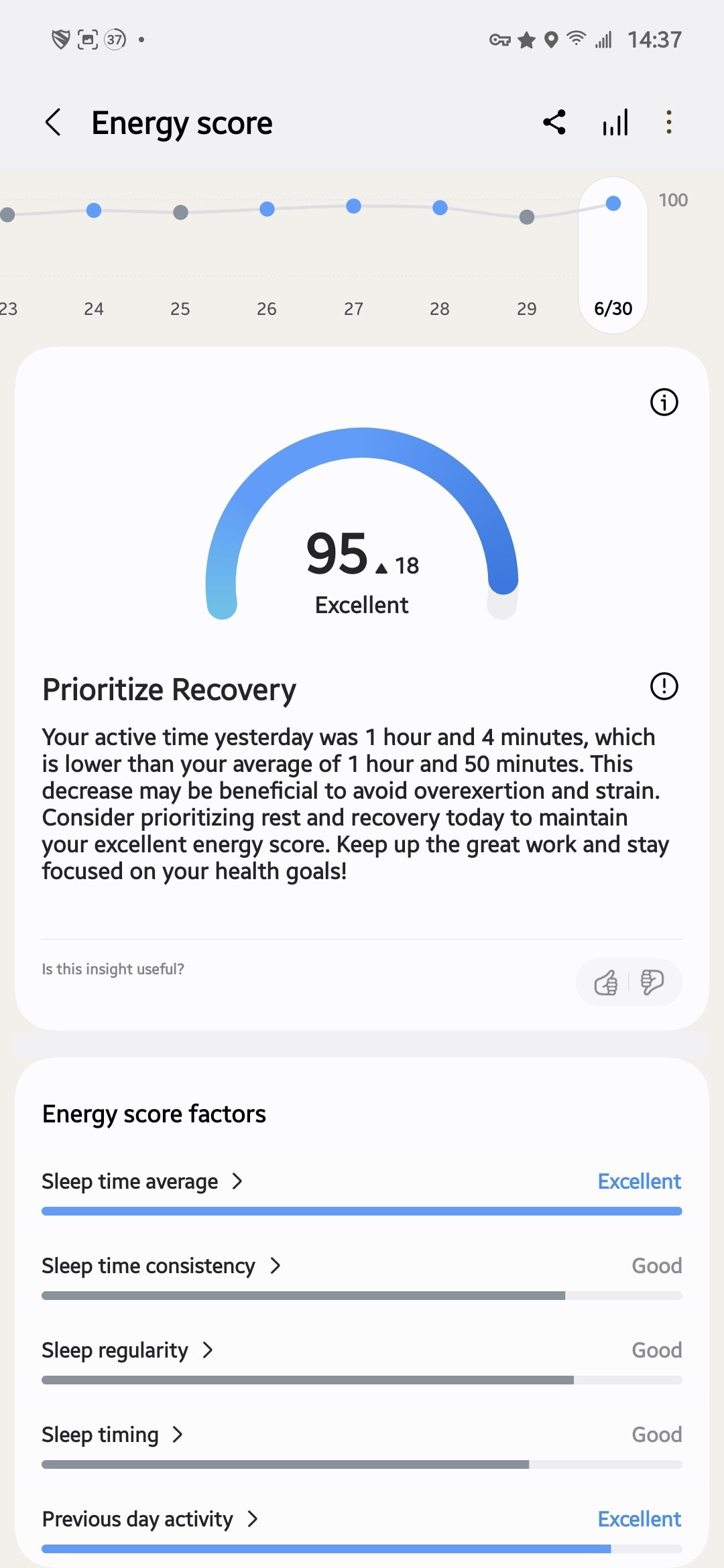
Andy Walker / Android Authority
I constantly see Energy Score insights advising me to rest instead of utilizing the 90+ value I received that day. Shouldn’t the app suggest rest if my scores are low and recommend exercise when my scores are high? As someone who has used Garmin’s incredible Body Battery metric before, which fluctuates minute by minute based on rest and exertion throughout the day, Energy Score is as confusing as it is meaningless.
Worryingly, Energy Score is a recent Samsung Health addition, highlighting the potential pitfalls that new features, even those locked behind the paywall, could likely face.
Smarter data presentation can be just as good as new features, if not better
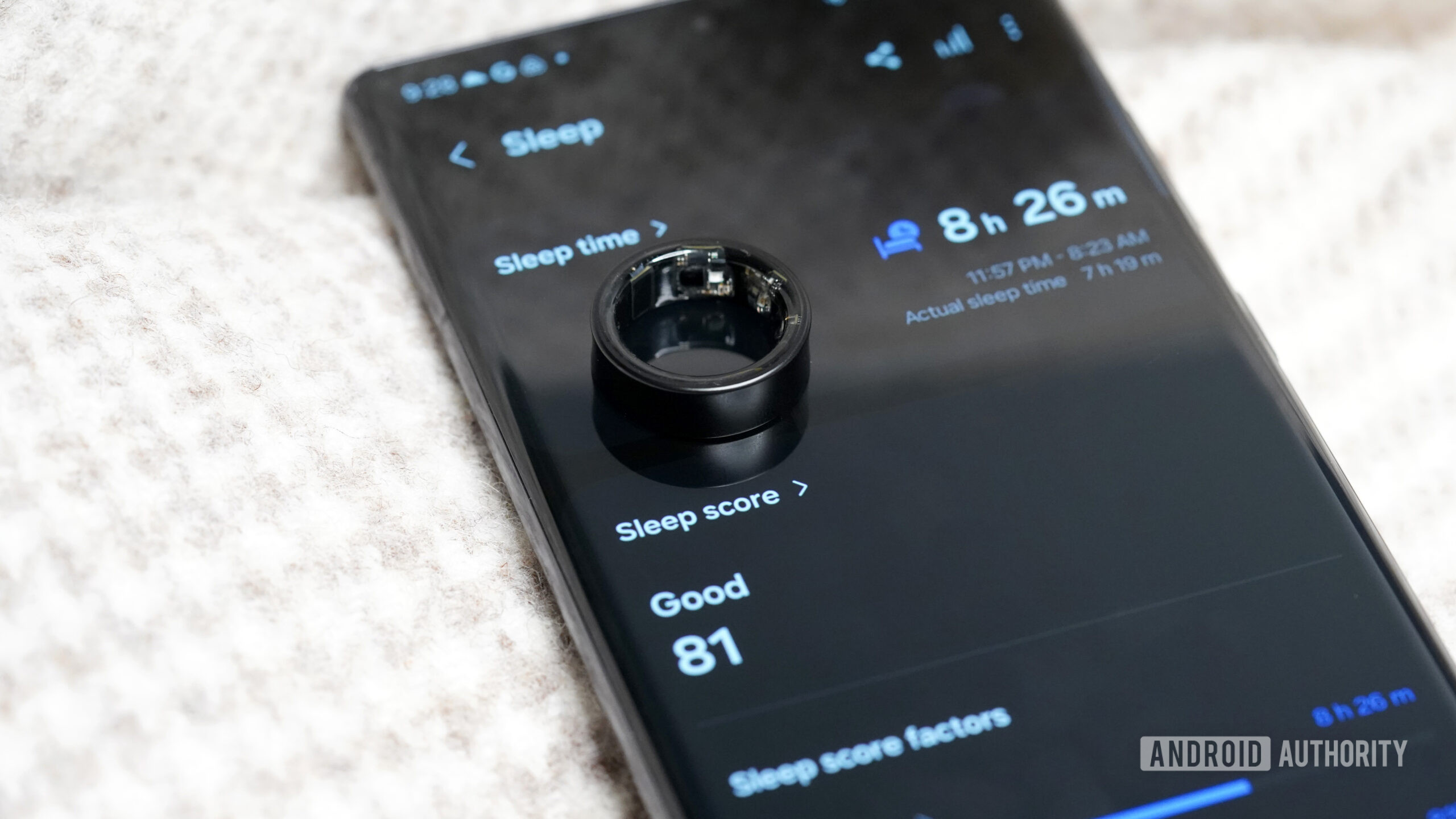
Kaitlyn Cimino / Android Authority
If I were to give the benefit of the doubt and assume that the data my Galaxy Watch gathers and Samsung Health processes is correct, I have other tangible issues with the platform. Perhaps the most important is how it presents information to users.
I often glance through graphs on various fitness tracking apps and think, “If this were laid out better, I’d get more use out of it.” That’s a problem I regularly encounter on Samsung Health.
Graphs are often so condensed that it’s difficult to pinpoint the value at an exact point. Some, like the sleep stages graph, make it impossible even to select a point along it. If I wanted to figure out if a car screeching outside my window overlaps with a brief heart rate jump, I’m out of luck. If I wanted to see how my heart rate dips and rises against my blood oxygen levels, I can’t — at least not accurately.
A master graph that charts the entire night’s data and highlights values for each metric at a given point is sorely needed. Additionally, the current position of these graphs, at opposite ends of the Sleep page, makes it extremely difficult to draw various conclusions without constant scrolling.
It’s worth noting that Samsung Health designers clearly understand my concerns. In the Daily Activity section, tapping on a point along the Steps, Active time, or Activity calories graphs offers a popup with a value for that period. See how that’s presented above.
I’m not paying for a platform that can’t get the basics right
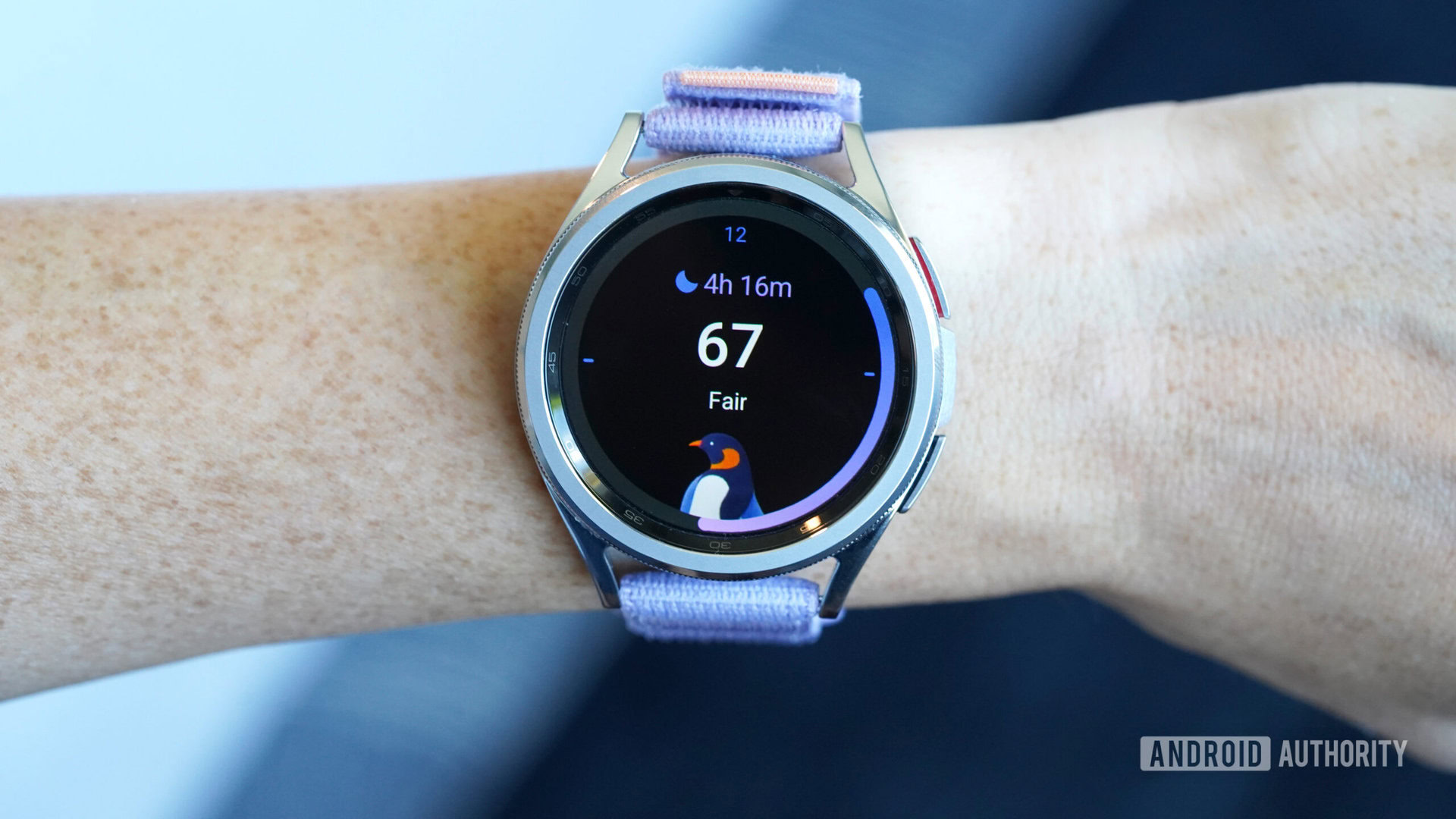
Kaitlyn Cimino / Android Authority
Companies in 2025 are far too focused on introducing new features to build excitement and intrigue rather than improving existing offerings. For those willing to overlook these faults and pay for fancy new metrics and indicators, remember that every advanced feature, whether AI-infused or not, hinges on the accuracy of baseline data. Additionally, if that data isn’t presented in a way that consumers can use, it’s just radio static.
Don’t get me wrong: I’m not inherently against Samsung or any other fitness company charging users for access to advanced health insights that require some degree of number crunching. However, I don’t believe Samsung Health is ready for its subscription-tier phase, and I absolutely refuse to pay for a platform that has yet to nail the basics.

